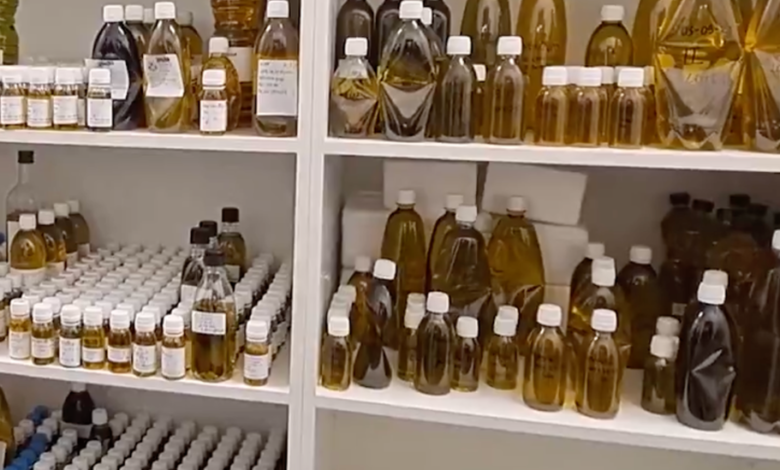
[ad_1]
Law enforcement agencies in Spain and Italy have arrested 11 people who ran a “food fraud operation” that produced more than 260,000 liters, or roughly 68,000 gallons, of olive oil that was sold as high-quality but in reality was “unfit for consumption,” officials said on Monday.
Officers from the Spanish Civil Guard and the Italian Carabinieri raided several locations last month in both countries, including sites in the Italian regions of Sicily and Tuscany, and uncovered barrels of oil that contained lampante oil, the lowest grade of olive oil, considered to be of terrible quality because of its high level of acidity and its unpleasant flavor and smell.
Officers also seized 91,000 euros, or roughly $98,000, and billing documents that belonged to the 11 people arrested, officials said.
The Spanish and Italian authorities, who did not immediately respond to requests for comment on Monday, did not name the 11 people who had been arrested or list specific charges.
The arrests have shed light on an underworld of fraudulent food sellers in Europe who for years have capitalized on foodies who seek luxurious olive oil, particularly from Italy and Spain, where local products are known for their slightly fruity and nutty fragrance and their vibrant green and butter-yellow hues that drip onto the plates of countless dishes, from backcountry villas to fine-dining restaurants around the globe.
Since 2013, European officials have tried to crack down on fraudulent labeling on a host of foods by organizing joint investigations with a number of law enforcement agencies and imposing tougher fines. Those fake labels have at times created a confusing marketplace in Europe, involving products including meat that was labeled beef but was actually cheap horse meat and an expensive spice that was called saffron but was really adulterated saffron mixed with cheaper materials.
But for years, olive oil has remained one of the most mislabeled food items on the continent, according to the European Commission’s 2022 report on food safety.
In 2019, olive oil became the product with the most requests for investigation, followed by fish and meat products, the report said.
About 15 percent of suspicious products reported to the European Commission’s system for food fraud came from Spain last year. Of those reports, most concerned squid products or mislabeled olive oil, the report said.
“Unfortunately, the faking of extra virgin olive oil is a common practice, which is why the fight against it is a law enforcement priority — especially in production countries,” Europol, the European Union agency for law enforcement cooperation, said in a statement.
Photos and videos of the investigation that were posted by Europol on social media hinted at a vast and detailed operation: towering silver barrels, safes filled with thick wads of cash, rows of computers, and containers filled to the brim with a thick, yellow-brown substance that investigators poured into small labeled bottles.
The 11 people charged diluted their olive oil product with lampante oil, officials said, allowing them to offer competitive prices as they entered legal supply chains.
“This illegal practice can not only cause a public health risk, but also undermine consumer trust and thus have further economic repercussions,” Europol said.
In Ciudad Real, Spain, officials seized a dozen barrels of adulterated oil — meaning extra virgin olive oil that was mixed with other oils — as well as four vehicles and billing documents. In Sicily and Tuscany, three oil factories were believed to have been involved in the illegal operation, officials said.
The investigation also comes as the global demand for olive oil remains high, with several forces, such as technology and climate change, transforming and challenging the industry.
Millions of consumers around the world regularly pay for extra virgin olive oil that is adulterated with inferior olive oil, mixed with cheaper oils like sunflower or canola, or colored with chlorophyll or beta carotene.
Still, adulteration is not prevalent everywhere. The North American Olive Oil Association, a trade association, said that “the biggest fraud in olive oil today is the stories leading consumers to believe it’s all ‘fake,’” citing studies showing that many samples of olive oil from U.S. retailers had been tested and found to be authentic.
A peer-reviewed study by the Food and Drug Administration published in 2015 found a low rate of adulteration — less than 5 percent — in 88 products sold in U.S. retail stores.
“So, go ahead and buy with confidence that you’re getting the real deal,” the North American Olive Oil Association said.
[ad_2]
Source link




